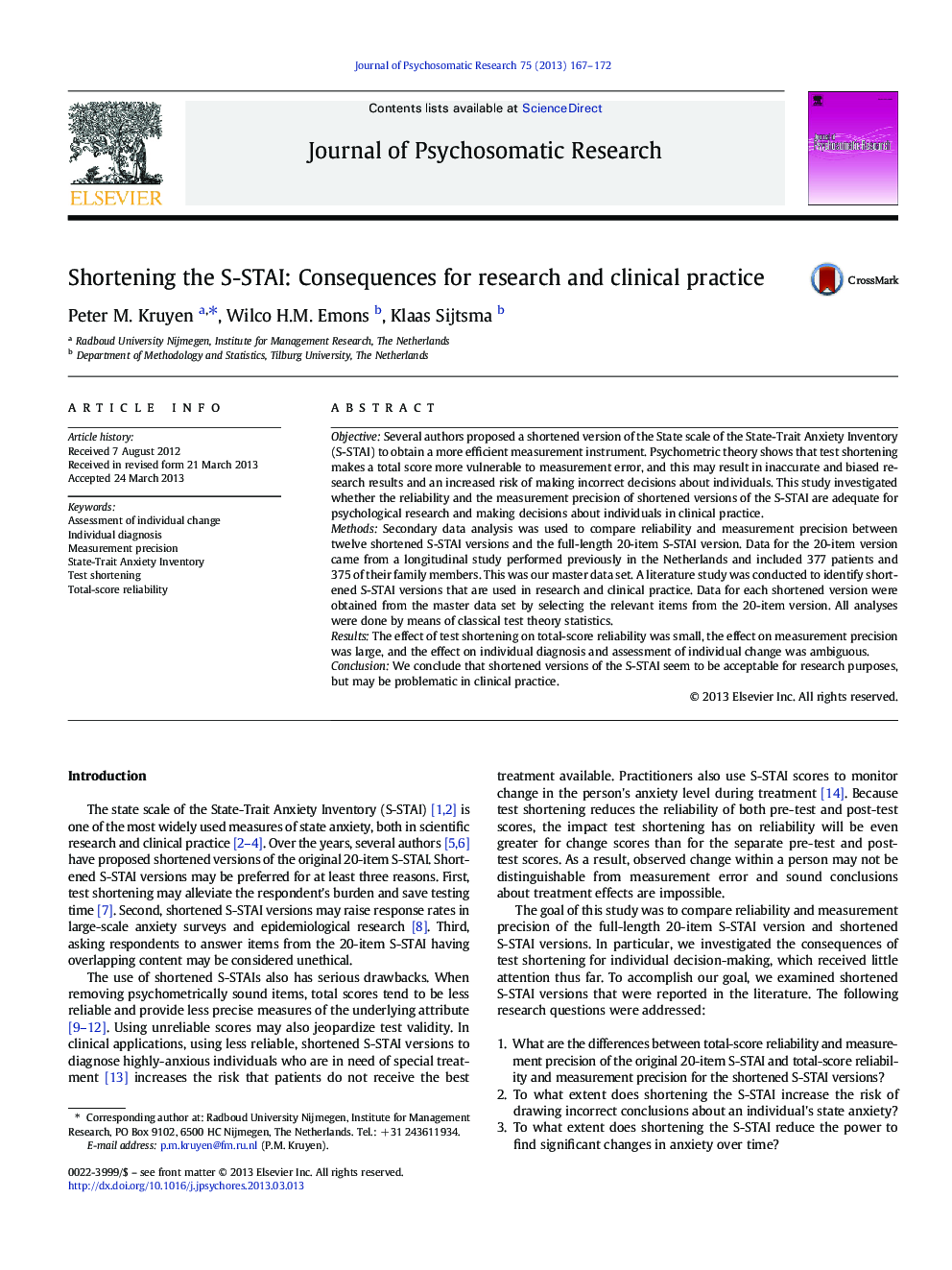| Article ID | Journal | Published Year | Pages | File Type |
|---|---|---|---|---|
| 949577 | Journal of Psychosomatic Research | 2013 | 6 Pages |
ObjectiveSeveral authors proposed a shortened version of the State scale of the State-Trait Anxiety Inventory (S-STAI) to obtain a more efficient measurement instrument. Psychometric theory shows that test shortening makes a total score more vulnerable to measurement error, and this may result in inaccurate and biased research results and an increased risk of making incorrect decisions about individuals. This study investigated whether the reliability and the measurement precision of shortened versions of the S-STAI are adequate for psychological research and making decisions about individuals in clinical practice.MethodsSecondary data analysis was used to compare reliability and measurement precision between twelve shortened S-STAI versions and the full-length 20-item S-STAI version. Data for the 20-item version came from a longitudinal study performed previously in the Netherlands and included 377 patients and 375 of their family members. This was our master data set. A literature study was conducted to identify shortened S-STAI versions that are used in research and clinical practice. Data for each shortened version were obtained from the master data set by selecting the relevant items from the 20-item version. All analyses were done by means of classical test theory statistics.ResultsThe effect of test shortening on total-score reliability was small, the effect on measurement precision was large, and the effect on individual diagnosis and assessment of individual change was ambiguous.ConclusionWe conclude that shortened versions of the S-STAI seem to be acceptable for research purposes, but may be problematic in clinical practice.
